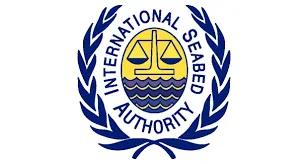International Seabed Authority(ISA)

The International Seabed Authority (ISA) has recently garnered international attention due to its prolonged inability to finalize regulations governing deep sea mining. Despite holding multiple negotiation sessions, the ISA has failed to achieve consensus among its 170 member states. At the heart of the deadlock is a fundamental disagreement on how to balance the economic potential of deep sea mineral extraction with the pressing need for environmental protection. While some countries advocate for rapid development of seabed mining to meet growing demands for critical minerals used in green technologies, others caution against the ecological risks posed by such activities. Environmental groups and some nations argue that mining in the largely unexplored deep sea could cause irreversible harm to marine biodiversity and ecosystems. This ongoing stalemate underscores broader global challenges in sustainably managing resource extraction in international waters, particularly in areas beyond national jurisdiction.
The ISA plays a central role in addressing these challenges. Established under the 1982 United Nations Convention on the Law of the Sea (UNCLOS) and the 1994 Agreement relating to Part XI of the Convention, the ISA is an autonomous international organization headquartered in Kingston, Jamaica. Its primary mandate is to regulate all mineral-related activities in the international seabed area — known as "the Area" — which lies beyond the limits of national jurisdiction. This region, rich in polymetallic nodules and other valuable mineral resources, is regarded as the “common heritage of mankind.”
The ISA is responsible not only for managing access to these resources but also for ensuring that activities conducted in the Area do not cause undue harm to the marine environment. To that end, it must develop a comprehensive set of regulations that both facilitate responsible seabed mining and establish stringent environmental safeguards. These include rules related to licensing, technology standards, environmental impact assessments, and monitoring mechanisms.
India, along with 169 other countries, is an active member of the ISA and plays a role in shaping its policies. As the demand for minerals such as cobalt, nickel, and rare earth elements increases — driven largely by the global transition to clean energy — the ISA’s regulatory decisions will have far-reaching implications. The current impasse highlights the urgent need for international cooperation in crafting rules that are both economically viable and environmentally responsible.
Comments
Leave a Comment
No comments yet.

